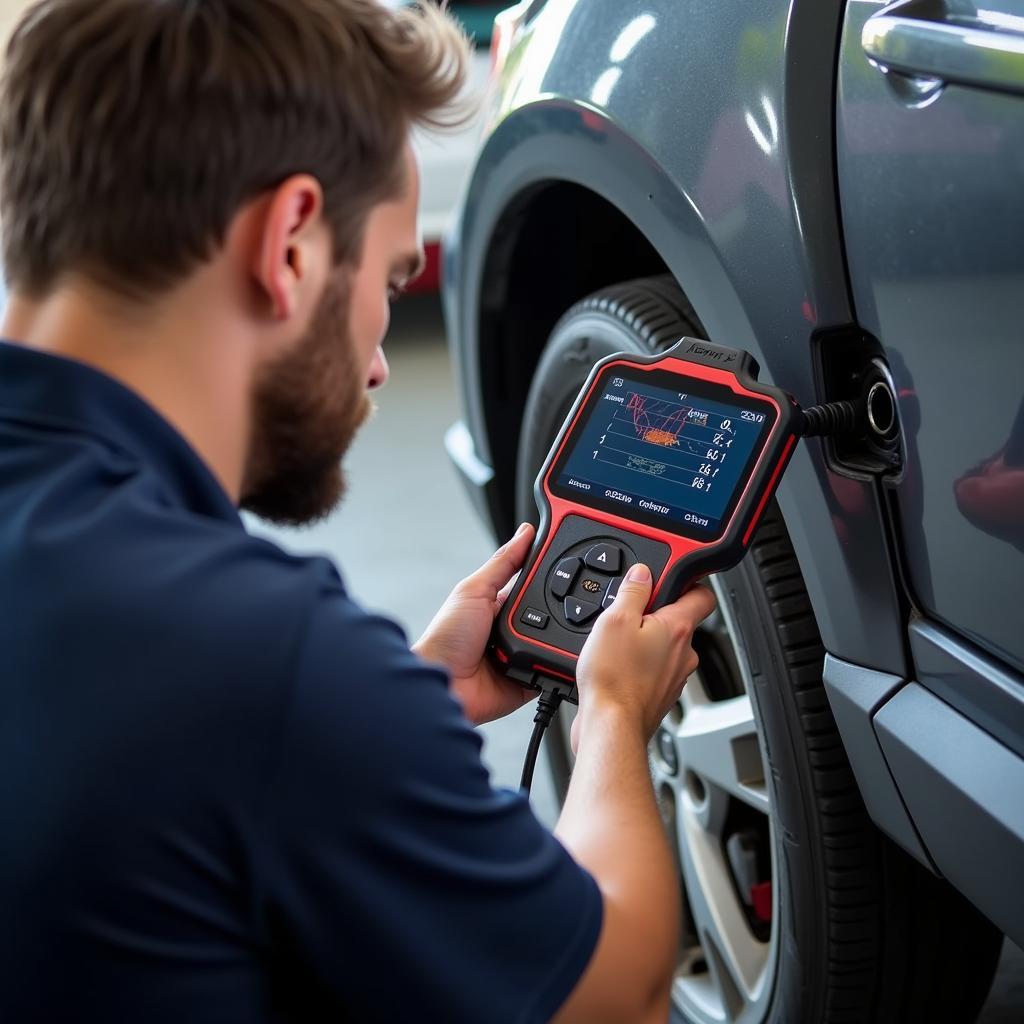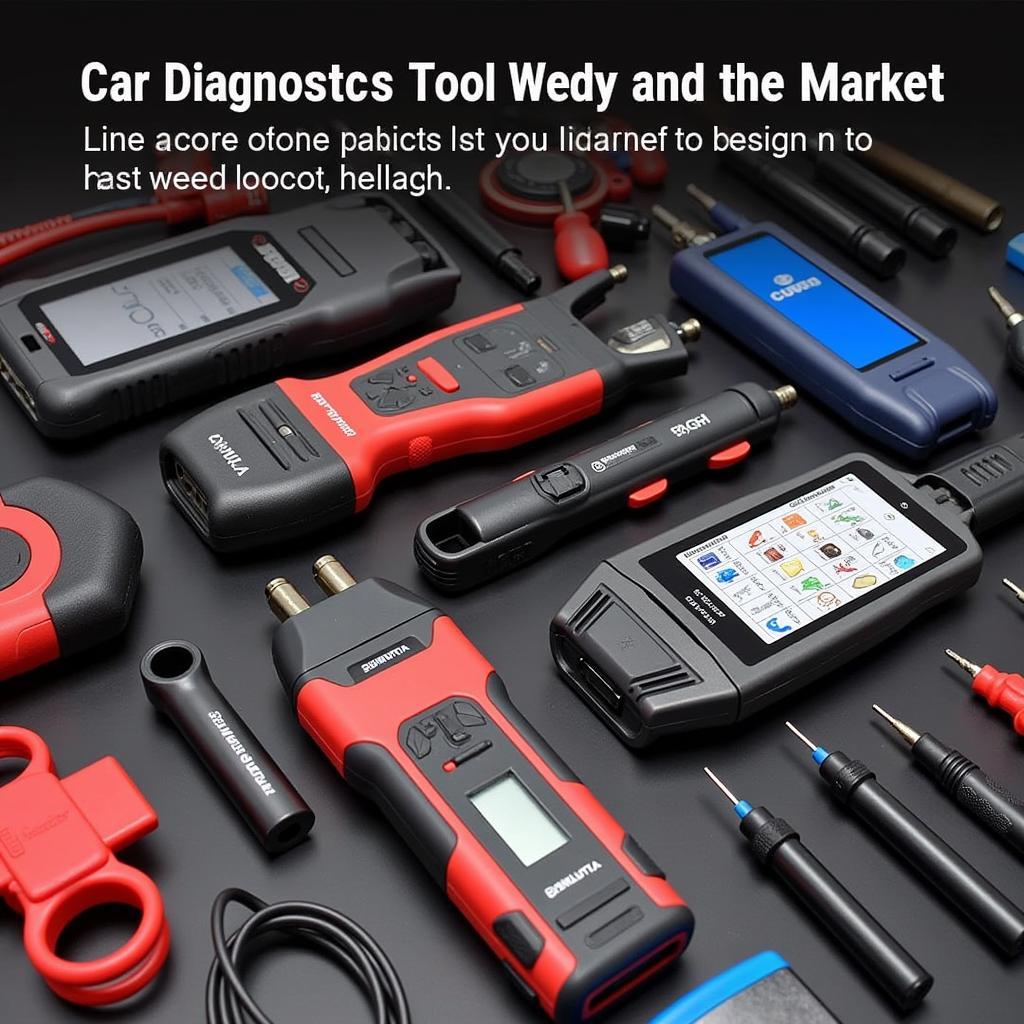Finding the right car diagnostic tool, often referred to as an auto scanner, can be the difference between a quick fix and a costly trip to the mechanic. These powerful devices allow you to tap into your car’s computer system, understand error codes, and even monitor performance parameters. Whether you’re a DIY enthusiast or a professional mechanic, this guide will help you navigate the world of car diagnostic tools and find the best auto scanner for your needs.
Why You Need a Car Diagnostic Tool
Modern vehicles are complex machines, relying heavily on electronic systems for everything from engine management to safety features. When a problem arises, the car’s computer stores a Diagnostic Trouble Code (DTC) that provides a clue about the issue. This is where a car diagnostic tool comes in handy.
A good auto scanner empowers you to:
- Read and Clear DTCs: Identify the root cause of warning lights on your dashboard and clear them once resolved.
- View Live Data: Monitor engine performance, sensor readings, and other critical parameters in real time.
- Perform Advanced Functions: Depending on the model, you can access functionalities like ABS bleeding, airbag system reset, and more.
 Mechanic using a best car diagnostic tool to diagnose a car problem
Mechanic using a best car diagnostic tool to diagnose a car problem
Types of Car Diagnostic Tools
The market offers a wide range of car diagnostic tools, each catering to different needs and budgets. Here’s a breakdown:
1. Basic Code Readers: These entry-level devices are designed to read and clear basic DTCs. They are affordable and suitable for car owners who want to perform simple diagnostics.
2. OBD2 Scanners: These tools connect to your car’s OBD-II port and offer more advanced features compared to basic code readers. They can display live data, freeze frame data, and some even provide manufacturer-specific codes.
3. Professional-Grade Scanners: As the name suggests, these are high-end devices used by professional mechanics. They offer comprehensive functionality, including bi-directional control (the ability to command actuators), advanced coding capabilities, and access to all vehicle systems.
 A selection of various car diagnostic tools, ranging from basic code readers to professional-grade scanners
A selection of various car diagnostic tools, ranging from basic code readers to professional-grade scanners
Choosing the Best Car Diagnostic Tool Auto Scanner
With countless options available, selecting the right car diagnostic tool can feel overwhelming. Here are some crucial factors to consider:
1. Vehicle Compatibility: Ensure the tool is compatible with your car’s make, model, and year. Some scanners are designed for specific vehicle brands, while others offer universal compatibility.
2. Features: Consider your diagnostic needs. Do you simply need to read and clear codes, or are you looking for advanced functionalities like live data, bi-directional control, or coding?
3. User Friendliness: Opt for a tool with an intuitive interface, easy-to-understand menus, and clear instructions. Some scanners offer wireless connectivity and mobile apps for enhanced convenience.
4. Budget: Prices can range from affordable to expensive. Determine your budget and prioritize the features that are most important to you.
5. Reviews and Recommendations: Read online reviews and seek recommendations from fellow car enthusiasts or professionals to gain insights into the performance and reliability of different models.
Best Car Diagnostic Tool Reviews
Looking for in-depth reviews of the top-rated car diagnostic tools on the market? Our team of experts has rigorously tested and reviewed a wide range of scanners to bring you comprehensive insights and help you make an informed decision.
Tips for Using Your Car Diagnostic Tool
- Locate the OBD-II Port: In most vehicles, it’s located under the dashboard on the driver’s side.
- Consult Your Vehicle’s Manual: This will provide information about specific DTCs and procedures.
- Start with the Basics: Begin by reading and clearing any existing DTCs.
- Don’t Ignore Warning Lights: Address issues promptly to prevent further damage.
- Keep Your Tool Updated: Manufacturers regularly release software updates to improve functionality and vehicle compatibility.
 A person is carefully connecting a car diagnostic tool to their car’s OBD-II port, following safety guidelines.
A person is carefully connecting a car diagnostic tool to their car’s OBD-II port, following safety guidelines.
Conclusion
Investing in the Best Car Diagnostic Tool Auto Scanner can save you time, money, and frustration in the long run. By understanding your needs, researching your options, and following our expert tips, you can empower yourself to take control of your car’s maintenance and tackle issues with confidence. Ready to find the perfect diagnostic tool for your garage? Explore our best universal car diagnostic scanner recommendations to get started.

Leave a Reply